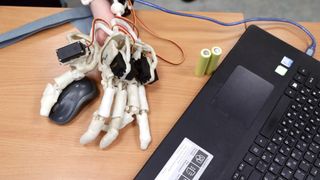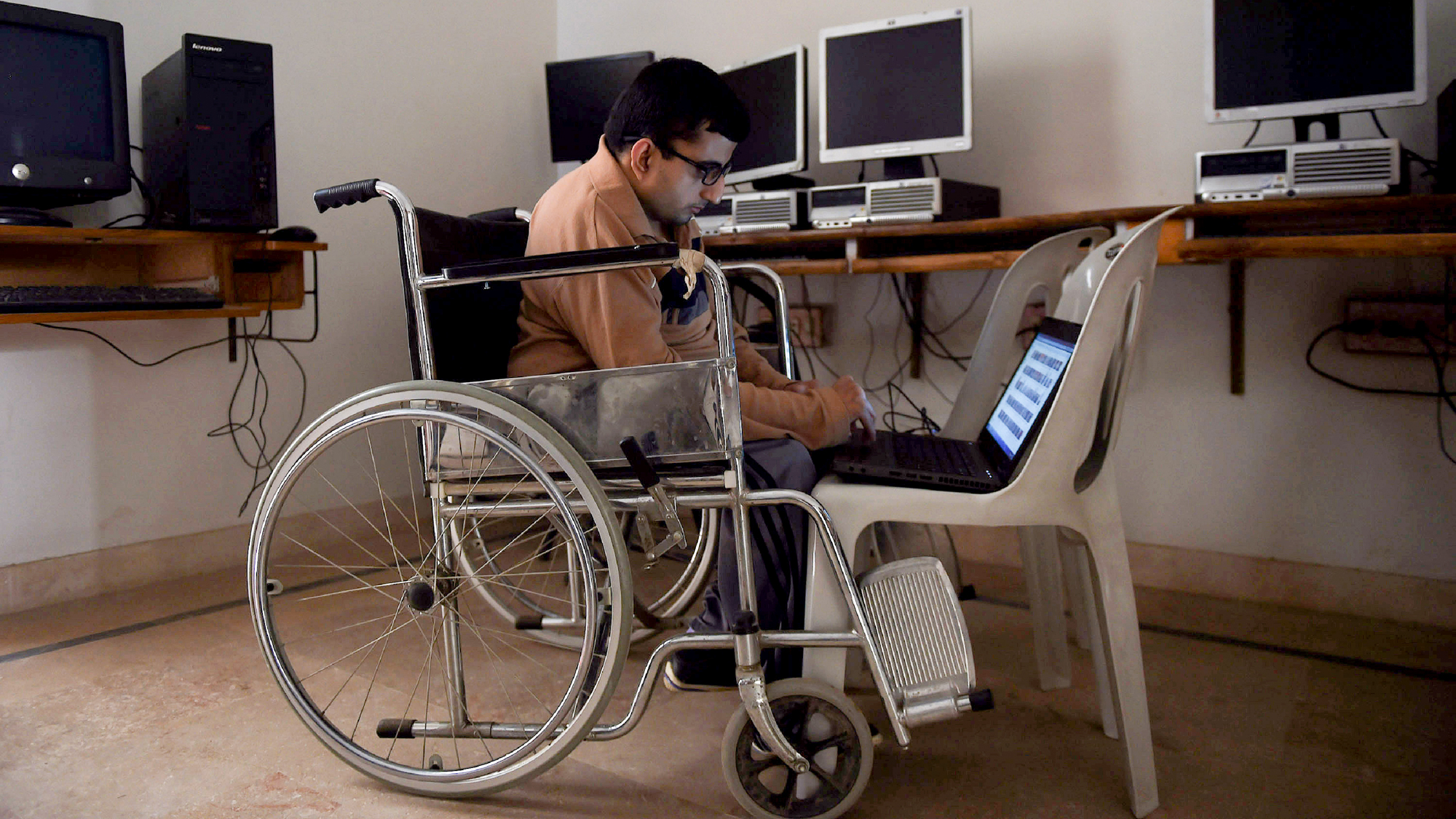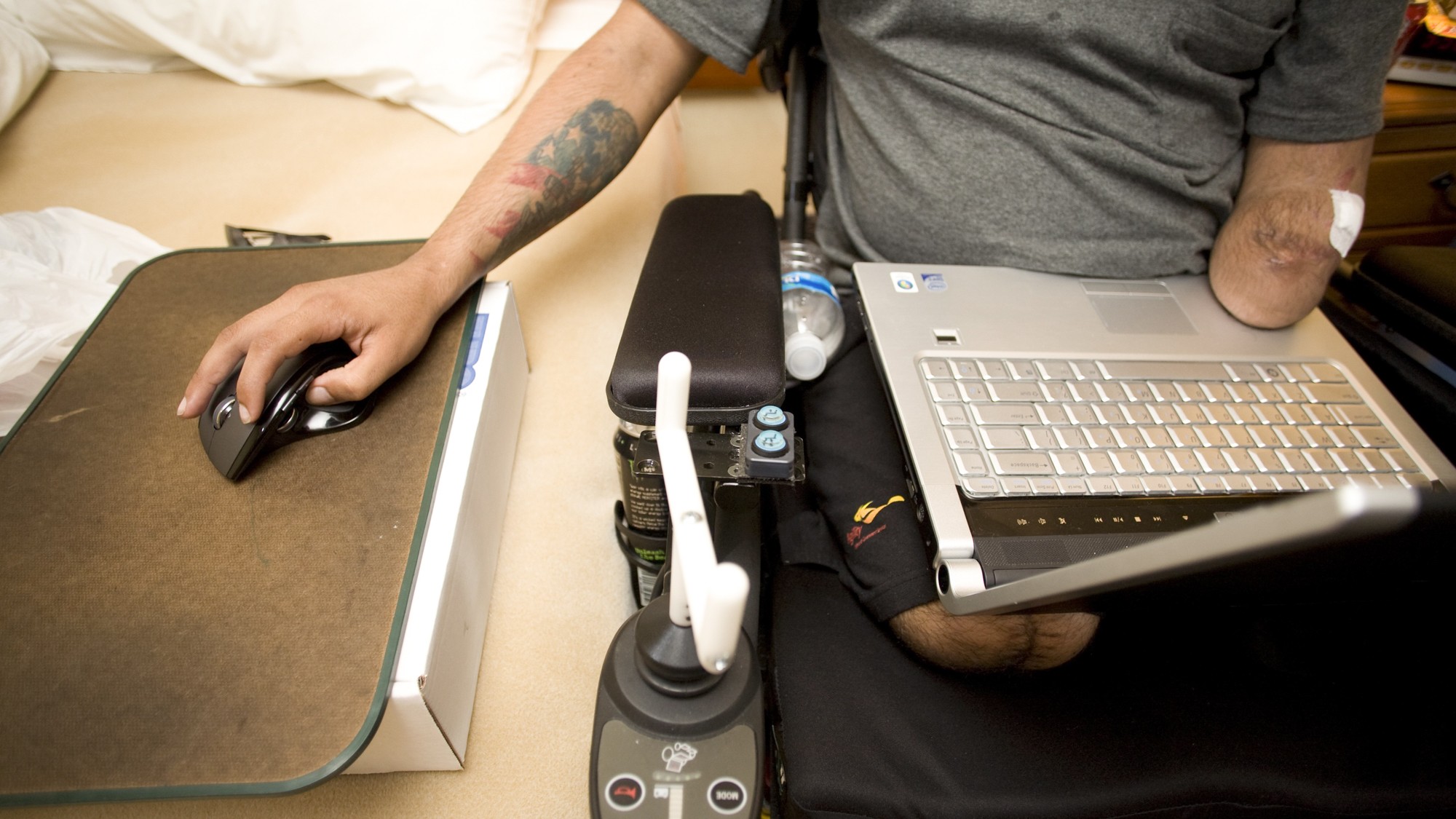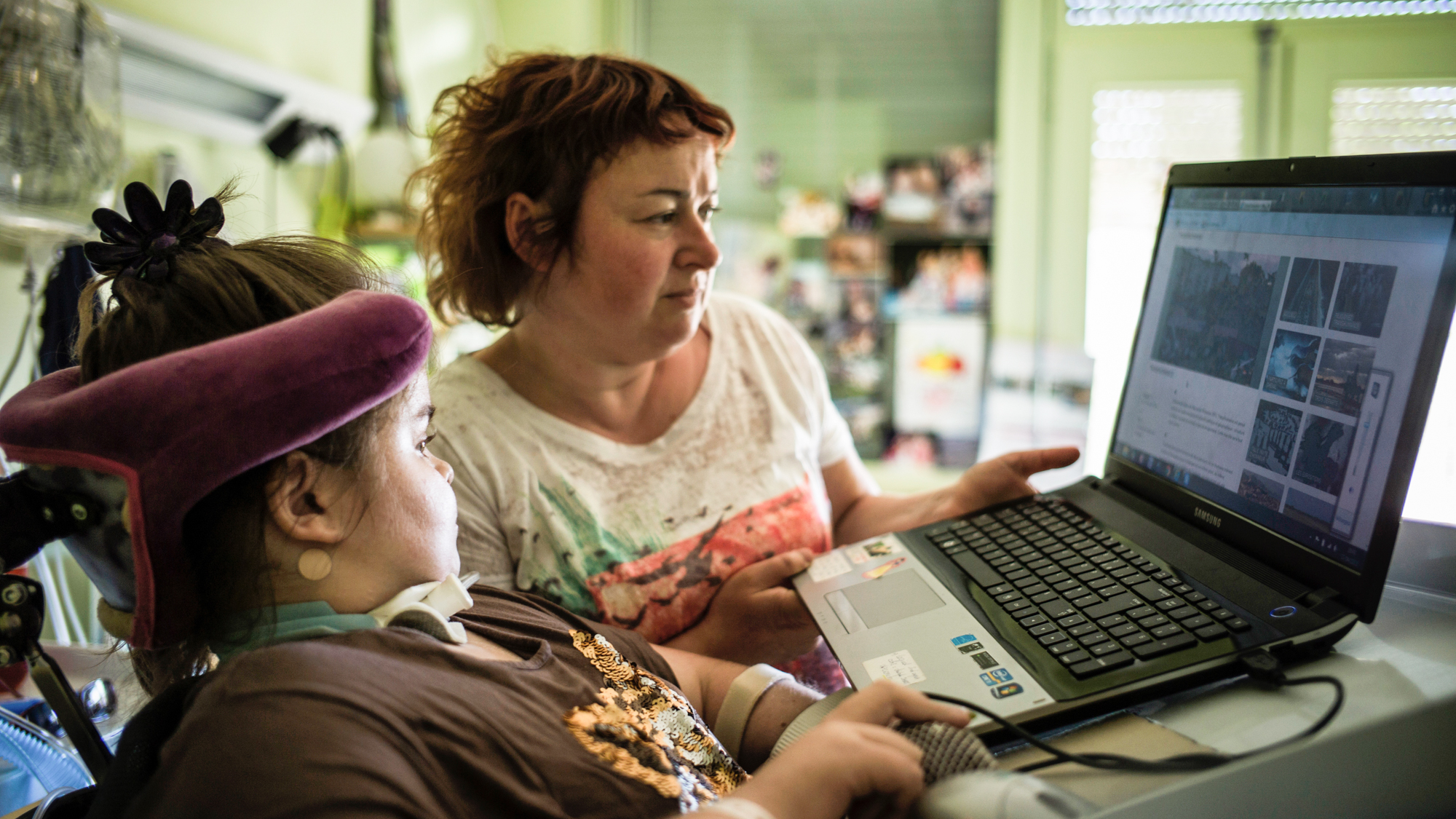The internet isn't inclusive enough — here's how it can be more user-friendly | Laptop Mag
The internet isn't inclusive enough — here's how it tin be more user-friendly

The Americans with Disabilities Human action (ADA) is 3 decades former, and 5 years later, Section 230, the internet law protecting publishers similar Twitter and Facebook, followed suit. Both are in need of an overhaul. Why are we all the same following internet laws that are 25 years onetime, anyways? As someone whose eyes skip, and has a laceration on his left cornea, likewise as a lack of fine motor skills, reading, typing, and using a mouse or trackpad, tin can be hard when navigating the web. Now is the opportune time to amend the myriad issues with the ADA. And then, permit's focus on creating an ADA for the digital age.
Many of the disabled rely on the net for their jobs, schooling, and as a way to collaborate and explore. Earlier Covid-xix, some individuals with disabilities "lived" online out of necessity. Now, everyone is doing more piece of work, shopping, watching entertainment, and communicating online. So, let's make the internet accessible for everyone.
How websites tin be more accessible
The Web Content Accessibility Guidelines (WCAG) are idea of as the benchmark for accessibility, but while federal websites are required to follow WCAG 2.0 or two.1 (or soon to be published 2.2), private websites continue to slide. They do take to exist "accessible," but this vagueness allows companies similar AccessiBe to claim quick and easy solutions by using their software. This prevarication is peddled despite digital accessibility being a circuitous event that can't be solved by add together-ons similar widgets and overlays.

If the WCAG provisions were incorporated in a revised version of the ADA, it would provide a ready of physical standards for all to adhere to. This would be analogous to the current standards for building codes like gradient slope, door width, etc. For instance, WGAC 2.i states: "The visual presentation of text and images of text has a contrast ratio of at least 4.five:ane." Information technology might exist meticulous for websites to comply with this rule, but these standards are necessary to ensure that pillars are in place so users with disabilities accept access to data. For instance, an optional audio recording could be provided for every online article instead of having only some websites coded to offer it.
Hopefully, in the future, there volition be a technological leap that galvanizes minor websites and big-proper name companies to natively offer a selection of WCAG-mandated color schemes, font sizes, and more. The goal is not to preserve discrimination by providing "special" avenues to experience a website; the objective is to create a bedrock website for all.
Social media is another corner of the cyberspace in dire need of WGAC compliance, which makes the disabled feel marginalized. Images are the nexus of social media interaction. As such, the disabled community would benefit from useful accessibility features such equally detailed descriptions under epitome posts. For example, let'south say Emerge posts a picture of herself playing with her dog. Instead of seeing a generic "Sally is playing with her canis familiaris outside" caption, I'd love to know the color of the dog and its breed. What nearly the environs? Is it stormy or calm? Is information technology day or night? These descriptions should too be applied to GIFs and memes. The disabled should not take to miss out on the fun of a meme because they happen to exist visually dumb. Meme-generator websites should not allow memes to exist shared without a description, so whenever it is shared, a person could tap or correct-click it to heed to the image's description.
While the inclusion of captions on platforms similar YouTube is heartening, pop apps like Clubhouse don't offering live captions. Even Instagram forces the hard-of-hearing to download third-party apps to add captions to Stories. These features should come built-in to all social media apps. Information technology would bring more users to the app, spice upward the user experience, and ensure that disabled users don't feel similar 2nd course citizens in social media communities.
Gaming
When we think of gaming, we imagine adolescents not bad buttons or ultra-focused adults engaged in strategy, only it as well has practical applications, like flight training, construction simulation, and precision agriculture. The artistry of consumer games should non be legislated, but businesslike uses should be. What if someday a construction robot could be controlled by a deaf person in a wheelchair? Shouldn't the instructive software have captions? Or, if you are an older or visually impaired farmer, it would be squeamish to accept a text-to-oral communication engine that vocalizes your mapping data and crop statistics so you can farm your country.

Fortunately, gaming giants have begun to heed the call for inclusion. Microsoft, for example, launched the Xbox Adaptive Controller and has a stellar accessibility section. Nintendo also deserves props for adding button remapping on the Switch. Sony's Final Of United states of america Part 2 has recently gear up a new precedent for accessibility in the traditional gaming market. With its sixty-plus options for disabled gamers, including vision, hearing, and motor accessibility presets, game developers would be wise to prefer these enhancements to attract new customers.
At that place is another reason to make a game attainable: cloud gaming. Over a billion people in the globe live without the internet. With the utility of the cyberspace driving prices down, forth with Starlink providing internet coverage for rural areas, hundreds of millions of new gamers may enter the market place — and a number of them will be disabled.
Cloud or console, if a game is played with a unlike mode than the default, who cares? Why deny a grouping of people royal worlds of gaming and entertaining dialogue that everyone else has the opportunity to enjoy?
AI
AI is another facet that neglects the disabled customs. This is why it was troubling when Google fired AI ethicists Timnit Gebru and Margaret Mitchell. They are women who might have been more in tune with minority communities such as the disabled, ensuring that AI is adult with us in mind.
Right now, confront unlock might not piece of work for a person with one eye stitched shut, which is similar to the criticisms AI developers faced for non considering skin complexion and os construction of sure ethnic groups for biometric authentication. Hand gestures on smart displays can make a user experience easier, only they might not work for people who lack fine motor skills. Many disabled people piece of work out, however fitness programs frequently don't recognize their torso types, stamina, or ability level. As the hope of tomorrow becomes increasingly AI-centric, it is important that the people most oftentimes thought to do good from new technology — the disabled — take some kind of representation at their helm.

When websites keep metadata, it's easier to fill out forms and can be a lifesaver for those who have difficulty typing, but will information technology jeopardize their security? Tin can metadata be used without invading the user's privacy? Although AI robots could one day help the disabled live on their own, volition they be immune to touch an individual who needs help transferring in and out of a seat? These are bug that we need to beginning crafting laws for at present.
This by January, an amendment to the ADA titled the "Online Inability Human activity" failed to get police force. Despite its positive framing, the law would take limited the disabled's power to file complaints regarding the inaccessibility of websites. In a 2022 landmark example against Domino's, the Supreme Courtroom upheld a lower court's decision in which a blind man sued the company because his screen-reading software couldn't read the website. These violations still occur even though the Department of Justice declared that sections of the ADA utilise to websites and mobile apps. Enforcement has always been lacking when information technology comes to the ADA, so defined legislation like the WGAC needs to be made crystal clear for businesses to follow and for the disabled to know their ceremonious rights. Let us hope, similar Department 230, the ADA is ushered into the 21st century.
Bottom line
If this happens, the disabled could relax and catch their breath, knowing that they're included in lodge'due south future. Right now, as is ever the instance, companies are using the consequence of accessibility to make money, or politicians and some individuals are trying to strip the disabled of the rights everyone else has in the name of business. If the WGAC became police, more people could use the net to buy goods, start businesses, making the economic system more robust for everyone. Inclusion is the fundamental to a digital dawning.
Source: https://www.laptopmag.com/features/the-internet-isnt-inclusive-enough
Posted by: moorebobtly.blogspot.com


0 Response to "The internet isn't inclusive enough — here's how it can be more user-friendly | Laptop Mag"
Post a Comment